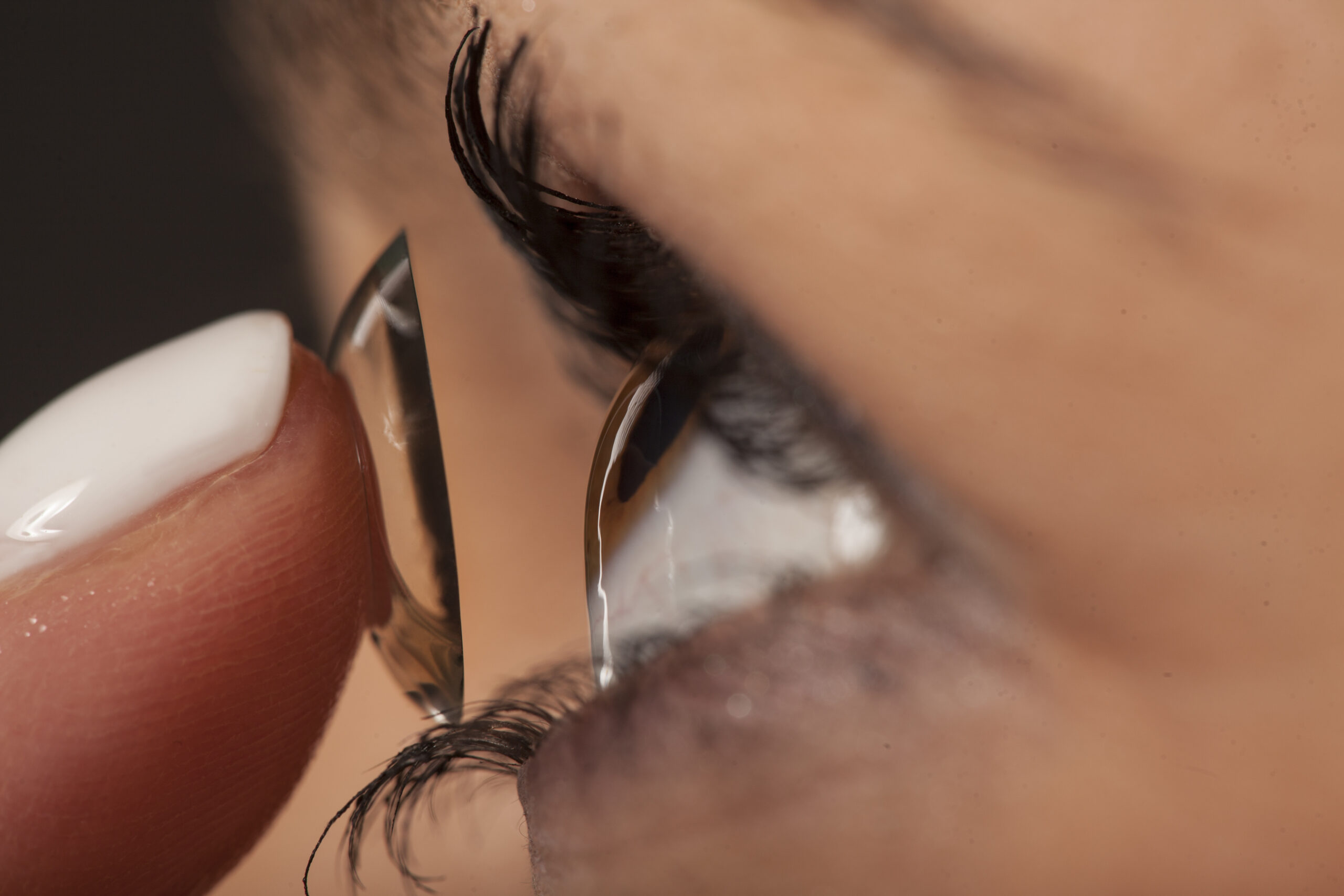Overwearing Your Contact Lenses: An Exploration

It is common for many contact lens wearers to become carefree and begin to improperly wear their contact lenses, thinking that there is no harm in overwearing them. They are wrong, and the ramifications can have devastating consequences that could lead to serious complications and uncomfortable side effects. While many people like the comfort and convenience of contact lenses, they should not be worn 24/7. Without a regular contact lens exam, proper care, and maintenance, contact lens wearers increase the risk of developing eye infections.
Overwearing contact lenses should be avoided at all times because it is simply a dangerous practice. Continue reading to learn more about contact lens usage and the dangers of overwearing your lenses.
What is Overwear?
“Overwear” refers to wearing your contacts longer than the prescribed length of time. For example, this could be wearing a 1-week lens for over 7 days. Contact lens overwear can occur because an individual chooses to overwear their contacts. It can result from wearing contact lenses during sleep, or a failure to replace them with new ones at the required time. Contact Lens Overwear syndrome, also known as OWS, is more common with non-gas permeable hard contacts, and it can be significantly painful in some cases, leading to eye infections and other complications.
Oxygen and the Eyes
The front surface of opened and uncovered eyes receives oxygen directly from the atmospheric air. When closed or covered, specific internal capillaries provide oxygen, but it is less than the amount typically drawn from the air. Factors such as the thickness of contacts, their movement when worn, the level of penetrable oxygen they allow, and the duration of the length they are worn, all have an impact on the degree of oxygen that will reach the cornea. Overwearing contact lenses deprive the eyes of needed oxygen and increases the risk of developing eye conditions.
Dangers/Risks of Overwearing Contact Lenses
Sometimes, mild symptoms from overwear are often ignored because individuals don’t view them as serious enough. Many individuals do not reveal their symptoms during their contact lens exam, which causes the problem to worsen. Some may ignore redness that is not accompanied by eye pain, or blurriness, discomfort and light sensitivity. Other signs of overwear include, tearing, contact lens intolerance, eyelid swelling, eye ulcers and infections.
Serious complications can include these conditions:
- Corneal Neovascularization results from oxygen deprivation in the corneal tissue and is caused by an invasion of new blood vessels into the cornea. It is characterized by persistent inflammation, and scarring, which impacts corneal transparency and visual acuity, and at its worst threatens one’s vision.
- Corneal Ulcer is characterized as an open sore of the cornea and can result in blindness or a loss of vision.
- Secondary giant papillary conjunctivitis exhibit signs of reduced lens tolerance, eyelid redness, heaviness and swelling, and a discharge containing pus and mucus.
- Keratitis occurs when the cornea is inflamed and symptoms may include eye redness and pain, blurred or decreased vision, or excess tears.

How to Avoid Overwear
Protecting one’s eyes require a proactive approach to care. Wearing contact lenses require more attention and thought in order to protect the eyes. Avoid overwear by:
- Do not wear the lenses longer than prescribed
- Give your eyes a rest from wearing contacts on occasion
- Do not sleep in the contacts
- Have a spare pair of glasses handy
- Follow doctor’s instructions
Overwear contact lenses is a dangerous practice that can lead to serious eye problems. It’s important that individuals who wear contact lens clean them properly, replace them when required and not wear them for a longer period than is prescribed. Healthy eyes are essential for good vision and a commitment to wearing contact lens should not compromise eye health. Contact Eyelux Optometry, an eyecare services provider, to learn more about contact lens usage and care, and how to avoid overwear and the potential complications.
